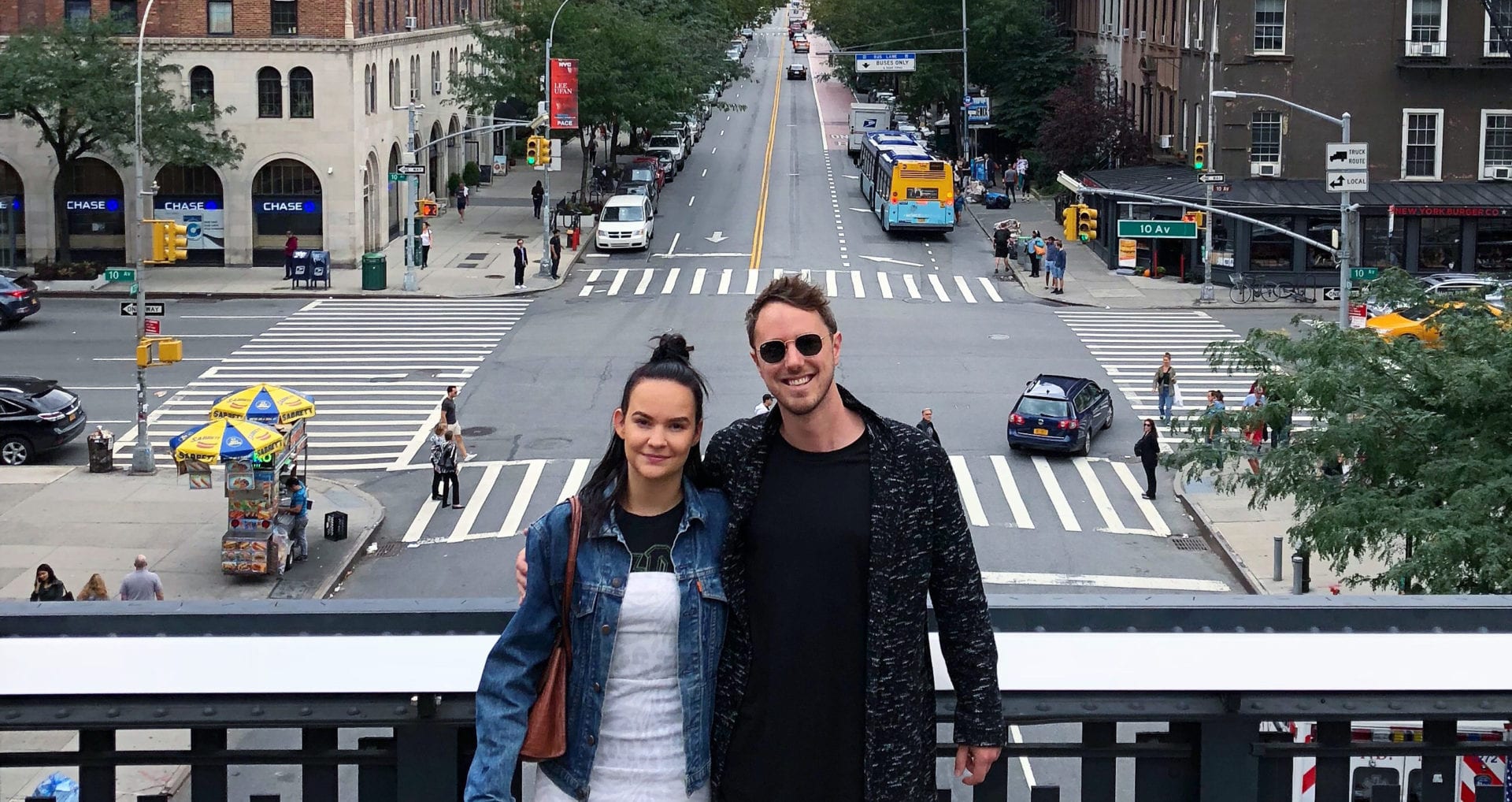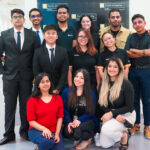How would you use technology to make the world a better place? Progressive thinkers from around the world came together to address this very question at the Social Good Summit held in New York in September.
Commerce students Anna Dunnett and Zac Farrow received a Curtin Give to Change Development Scholarship to attend the summit and hear first-hand examples of how people are delivering progress.
“We got the idea of attending the summit after coming back from the Stanford International Honors Program, where we became really interested in social enterprise and the intersection between activism and technology,” Dunnett says.
The summit united corporations, non-profits, government, universities and social enterprises to discuss what type of world we want to live in by 2030. It featured back-to-back panel sessions by individuals who are using technology and business to lead the way in global progression in areas such as education equity, gender equality, environmental sustainability and financial autonomy.
Farrow was particularly impressed by New Story, a San-Francisco based charity using 3D technology to print houses for people living in slum conditions in developing countries.
“In 24 hours, the 3D printer can create a new, 600-square-foot home for under $4,000 [US]. They’ve constructed homes in Haiti, Mexico, and Bolivia, and there are plans to build a whole community of homes in El Salvador next year,” Farrow says.
For Dunnett, the opening speech by New Zealand Prime Minister Jacinta Arden was the summit highlight.
“My family is from New Zealand, so I was ‘fan-girling’ over her a bit! But I have such respect for Arden as she pushes the envelope and actually makes a difference. She’s well respected within the UN community and it’s inspiring to see a woman in politics who is unapologetic about her actions and ambitions.”
Dunnett has just completed her final year exams in business law and international relations, and says the summit inspired her to realise the career possibilities available after university.
“The best thing was seeing the breadth of opportunity out there. I’ve always been a planner and thought I had all these things in place, but experiences like the summit showed me that there are people out there doing all sorts of different jobs, but still aim to make an impact in the world.
“Instead of thinking, ‘Well I’ve done this degree, now I’ve got to get this type of job’, it showed us that there are people who are doing things differently, or maybe they’re working in regular roles but they’re pushing for change in their industry.”
While it may be easy for a young graduate to be optimistic about the future, social enterprise is a bourgeoning sector that is improving societal, financial and environmental challenges by adopting trade strategies.
“Just giving financial aid doesn’t always work, or isn’t sustainable, so social enterprise looks at what businesses can be built to fix certain problems,” Farrow says.
Like Dunnett, the summit has inspired Farrow to use his degree in business law and accounting to do something positive.
“I want to focus more on commercial law, but apply it in a socially good context. A key theme of the event was to just make a start on something you care about.”
Dunnett says there are multiple opportunities available to Curtin students that can help them find purpose beyond the classroom.
“Take up those opportunities. You think you’ll never get it because you think you’re not good enough, but just apply and see. Getting involved at uni and going to the summit have honestly been the best things that I’ve done.”
If you’re a Curtin commerce student and would like to experience opportunities like the Social Good Summit, contact Industry Connect. If you’re studying a degree other than business or law, you can check out UniHub. Both initiatives connect students with a range of academic and development opportunities.



